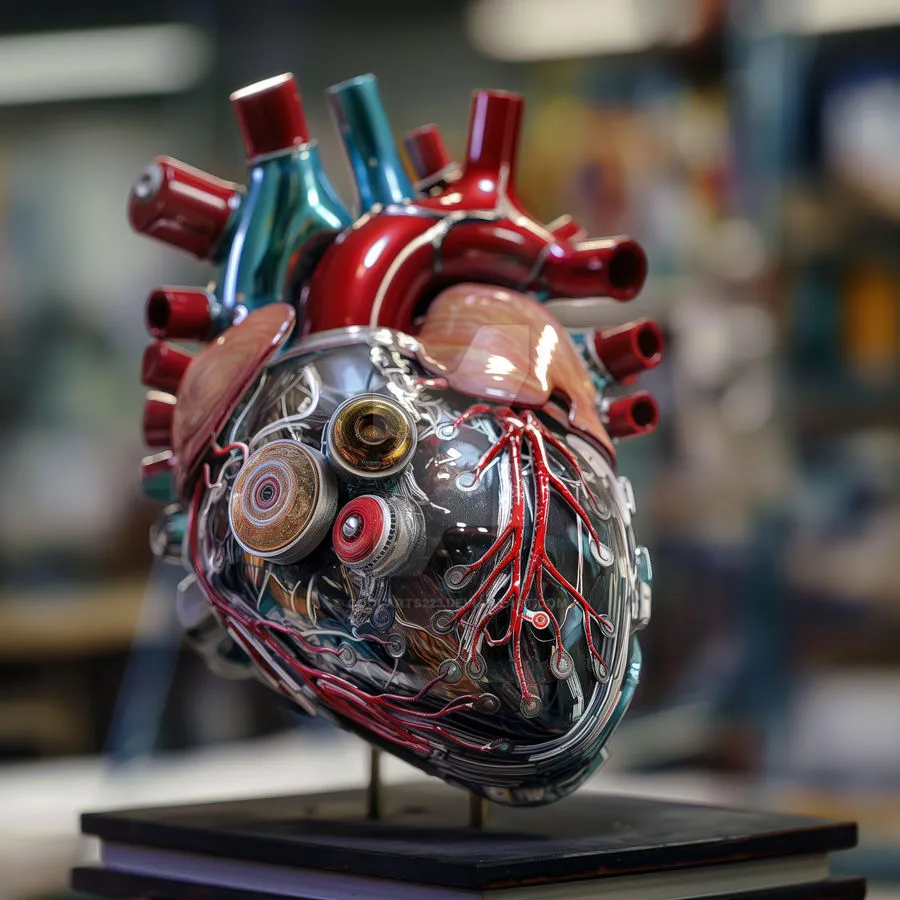
Image by Coolarts223, from Deviantart
The Texas Heart Institute Implants Artificial Heart
On July 25, a team at the Texas Heart Institute (THI) successfully implanted the world’s first BiVACOR Total Artificial Heart (TAH) in a human patient. This groundbreaking procedure marks a significant advancement in the treatment of severe heart failure, potentially offering a bridge to transplant for patients facing long wait times.
The BiVACOR TAH is a revolutionary device compared to existing total artificial hearts. Unlike traditional models that rely on flexible diaphragms, the BiVACOR TAH utilizes a single, magnetically levitated rotor (a significant design simplification). This translates to several key advantages. Firstly, the absence of mechanical bearings and moving parts minimizes wear and tear, potentially extending the lifespan of the device. Additionally, the BiVACOR TAH is capable of delivering high blood flow rates, even during exertion, mimicking the performance of a healthy heart. Finally, the implant is small enough to fit most adult patients, promoting better patient comfort and mobility.
Daniel Timms, PhD, Founder and Chief Technology Officer of BiVACOR said, “I’m incredibly proud to witness the successful first-in-human implant of our TAH. This achievement would not have been possible without the courage of our first patient and their family, the dedication of our team, and our expert collaborators at The Texas Heart Institute. Utilizing advanced MAGLEV technology, our TAH brings us one step closer to providing a desperately needed option for people with end-stage heart failure who require support while waiting for a heart transplant. I look forward to continuing the next phase of our clinical trial.”
Heart failure is a major global health concern affecting an estimated 64 million people worldwide. Unfortunately, heart transplants, the current gold standard for severe cases, are limited due to donor availability.
The successful implantation of the BiVACOR TAH represents a major leap forward in cardiac care. This innovative technology holds immense promise for improving outcomes and extending the lives of patients suffering from heart failure.


 Previous Story
Previous Story

 Latest articles
Latest articles 

Leave a Comment
Cancel